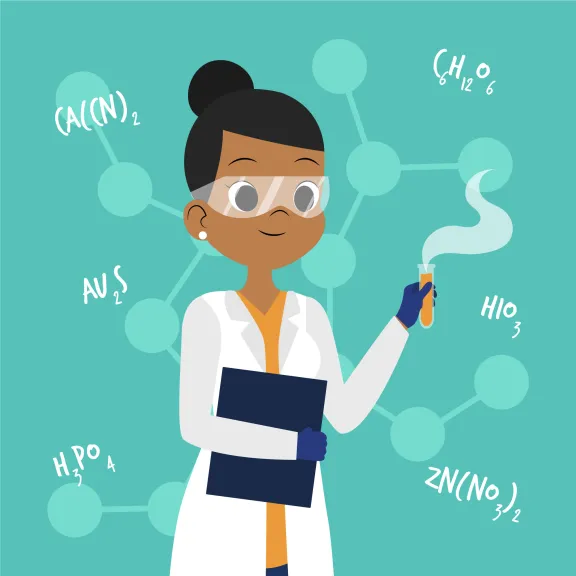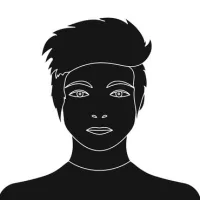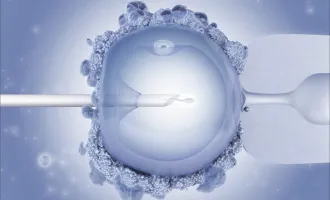
Image by Freepik.
Tale of First Day in Lab Rotations: Navigating Pipettes and Lost Washrooms
It is that time of the year again. The holidays are done. Everyone is returned from visiting family and friends. Having spent the holidays in absolute bliss, the new quarter start is more painful than ever.
Can you imagine how anyone works long hours ever? Studying for new courses and exams? Introducing the exciting world of graduate school! Library, anyone? Well, it’s good to be back in San Francisco, where you can always count on the weather to be in the 50s.
I am graduate student. Most graduate programs have the concept of rotations. Rotations are trial periods where you get to join a team of scientists and test out your compatibility working with them, kinda like dating except with pipettes. New quarter means new rotation! And who doesn’t love a new rotation?
Not knowing where to find pipette tips while you attempting an experiment because you are new in the lab is such an important rite of passage in the rotation. Remember your previous rotations? You eventually got so comfortable around the lab to be able to find pipette tips in a jiffy, as easy as finding yourself a cup of coffee.
But for the next week or two, your routine involves asking the point person assigned to take care of you, where everything is kept, getting mad at yourself for forgetting, laughing at the fact that you don’t know where the nearest washroom is, getting lost trying to reach the conference room for lab meeting and trying to learn names of everyone sharing the lab space with you (both the lab members and adjacent labs).
Ooh I almost forgot, you also need to attend the new classes! Just when you thought you were getting a hang of things.
Well not is everything about a new rotation is unsettling. New rotations are also about meeting new people. Now that the holidays just got over, of course meeting new people entails asking them about their holiday break and receiving vague answers since, in all fairness, they don’t really know you. And the science!
As scary as it is to start over in a new project and work on something for only 8-10 weeks, it is exciting. That’s why we signed up to do rotations, right?
What does a typical first day of rotation look like?
You ideally know who you are reporting to and how to get to the building and hopefully, you have access to the building. Because sometimes academic buildings can be bank vault without the right set of keycards and keypad lock combinations.
If you don’t have access, no worries! You just need to wait outside like a clueless puppy, before some senior scientist, will take pity and let you in. (Sometimes it feels like the first year of graduate school is a lot like being a clueless puppy.)
Now that you are in the building and hopefully in the lab space. Although from the ground floor of the building getting to the lab space can be as tricky as finding your way out of a mirror maze especially at UCSF with multiple entry levels and doorways and lifts, everything can seem confusing.
All you need to do is be willing to spend 15 minutes waiting for elevators and ask someone for help. (It is a well-kept secret that UCSF Parnassus campus is a labyrinth of buildings, and you can find the way to the labs only after you leave a trail of sweat after long, long days in lab.) Everyone is very nice and they will help and the elevators can’t help, they are just a little bit slow.
Now in the lab space finally, the PI or the lab manager will show you around the lab and take to your sitting space. That desk and chair will be your hallowed space for the next 10 weeks. While you adjust the chair height, hopefully your new lab mates will come over to chat with you.
You’ll have a point person assigned to you and they talk to you more about your project. It’s quite naturally to feel confused and interested at the same time, since you are starting off a new project. Then probably comes lunch break!
You get to see the break room. Just as much as the laboratory benches represents how the lab does science, so does their break room. The break room energy and lunch table conversations are always informative about the lab culture. Afterall that’s the purpose of the rotation!
You watch as animated conversations happen with close friends about their breaks or current experiments or the Monday’s seminar speaker’s talk. You learn about the one conversation topic that stirs the lab the most.
For example: Where do you get the best burgers in California? In-N-Out or Shake Shack or What happened on the late-night show yesterday?
At this point, you have probably been asked 10 times about prior experience (where you did your undergrad, what labs did you work in) and why you wanted to rotate in this lab but you (atleast need to pretend like) don’t mind since you have also been learning a lot about the lab members. You definitely will learn about the department secrets and lab traditions.
Finally, you return to your newly assigned desk. For couple of minutes there, you probably get to sit there cluelessly wondering what to do for the rest of the day, maybe some passing thought about the comfort of your bed that awaits you when you return home.
But these thoughts need to be pushed away, since your point person has come and offered to show you how the lab does technique XYZ. Yes! The same technique XYZ, that you have read about extensively, while deciding that this is the lab you want to rotate in.
So you head over the bench, after donning all the necessary safety equipment (After all, you just finished taking all the necessary safety trainings to join this laboratory for the rotation and you know exactly what will happen to you if a chemical accidentally falls on you.) and start pipetting.
Every pipette is different and while you use the current pipette, thoughts wander off to all the other dear pipettes you have used over the past few years and how you might miss them. But then the gaze of your point person observing you pipetting makes you acutely aware that you are being observed.
AM I PIPETTING PROPER? IS THIS FORWARD PIPETTING OR REVERSE PIPETTING? Of course I know what I am doing! I have been pipetting for years. I got this! Except you accidentally introduce a bubble while pipetting or eject the tip outside the bin.
OH CRAP! The point person saw that! I can’t believe that I did. Just need to be more careful! And keep going on. Just keep swimming! Just keep swimming! (I might be a big Finding Nemo fan)
Most training involves an expert observing the new trainee to ensure no mistakes are made and no lives are risked. But as a rotation you are doing something for the first time in the new space on your first, so you are a little extra cautious and maybe a little extra slow even.
But that’s okay because that’s what is expected. You finally finish doing the first experiment. You are feeling excited about the next few weeks. You probably figure out how you are going to spend the next few days with your point person, making mental notes to learn where things are kept.
It's time to pack up and leave. You say joyfully bid farewell to your new acquaintances and as you head back home, you’re already daydreaming (or nightdreaming – if it was a long first day) about all the fun you’ll have the next few weeks with these comrades.
Starting over in new labs isn’t always a walk in the park, but you are doing this as part of the quest of finding a permanent lab for your PhD, so this marks the beginning of the journey in what could be your lab.
So even if you felt clueless today, there will be some day when it will the place you know better than most people, it will be your second home (well at least revered working space), filled with familiar faces and likely a place with a few too many pipettes that you know really well.



